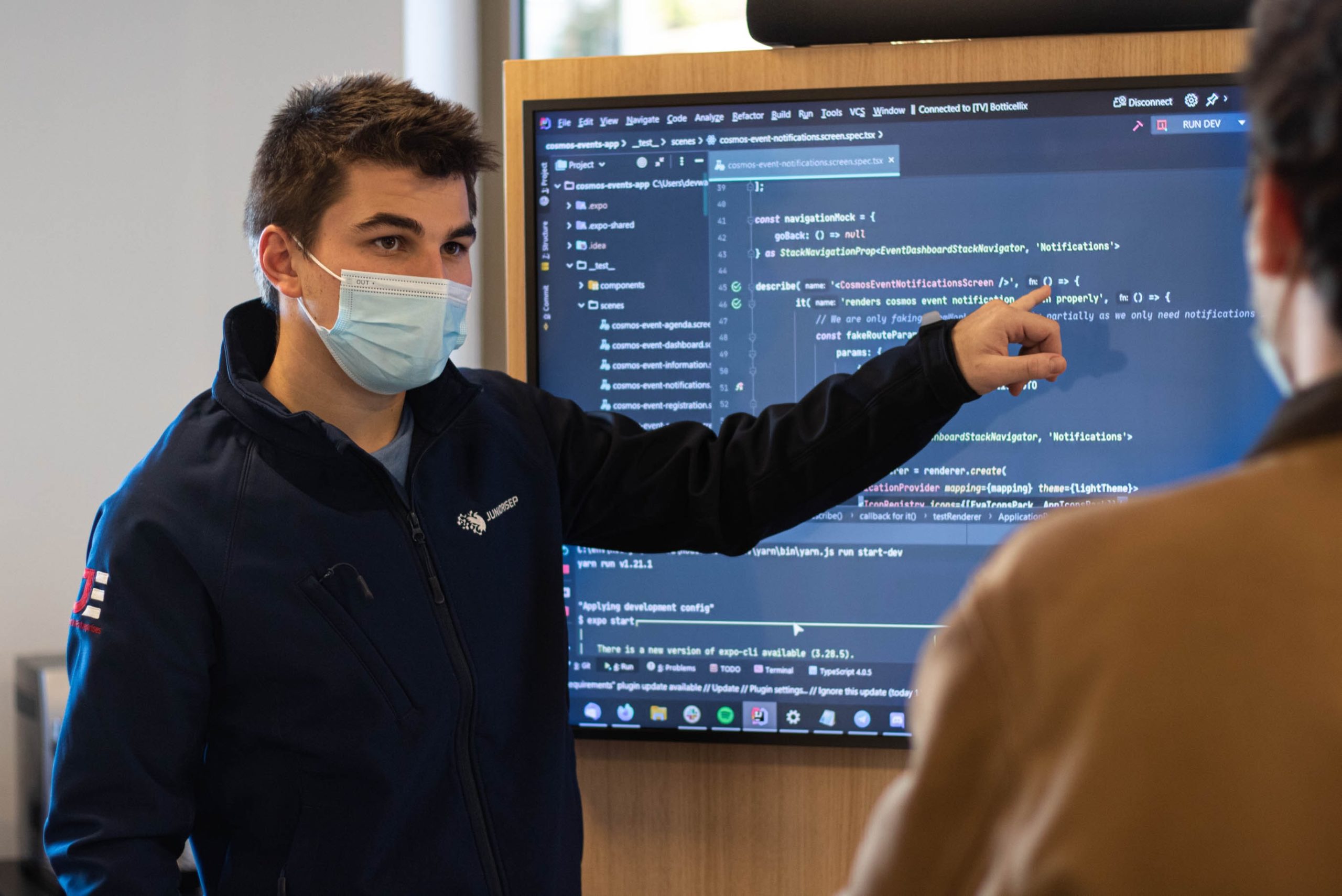Revamping traditional ICT education with an agile SCRUM-based methodology
Presented by: HU University of Applied Sciences Utrecht
Industry: Higher Education
Location: Utrecht, Net–herlands
Size: +250 employees
Challenges:
- Education and training programmes are distant from the market needs
- Education and training programmes can be too rigid for learners
- High drop-out rates during the first year at university
Solution:
The University of Applied Sciences Utrecht (HU) is revamping ICT education with its “Open-ICT” bachelor programme. No standard courses and no exams on the menu but self-discovery and cultivation of a passion for ICT-related professions.
To propose such a shift from traditional learning paths, HU built on successful previous experiences of its programme’s specialised branch on Open Innovation and introduced agile learning and working processes based on the SCRUM methodology.
Students are given real-life assignments and, after six months, work on real-world challenges offered by external clients. To complete their assignments, students meet every two weeks — as a team — to define the solutions they will build for their clients (sprint). Based on their functional wishes, students assign themselves tasks and identify what they need to learn next to complete the tasks.
Each student has a coach and receives continuous feedback on their professional and content-related development from peers and experts. Their progress is tracked via a dashboard based on ten essential ICT-related skills and helps them visualise where they stand as well as acts as a basis for the assessment.
At the end of an education cycle, students assess themselves and set their own development goals for the following period. The developments are discussed and polished during an interview with their coach.
Results:
The agile programme is effective to lower the drop-out rate during the first year (25%) at the university. Coaches have noted a very high level of commitment from students (>35 working hours/week) and overall high satisfaction (9/10).
Often, external clients have taken the products developed by the students into production.
The programme has won the university’s educational innovation award and a national innovation award. The related gains have been re-injected into the programme to cover for increased staff and innovation capacity.
Key benefits:
- Flexible, personalised learning pathways widen the access to education and improve learners’ satisfaction
- Real-world assignments ensure education is linked to market needs
- Task-based learning makes it simple for students to identify their next learning step and continue learning independently
- Teachers can focus on coaching students rather than grading student work
Key resources:
- Support teachers to move from the “expert” to “coach” role
- Remodel classrooms into an open learning space fit for the student’s needs, including 1-1 or team meetings, pitching areas, etc
- Agile programmes are well suited to markets where tech plays a major role and changes are rapid. It can be challenging to apply to other fields
